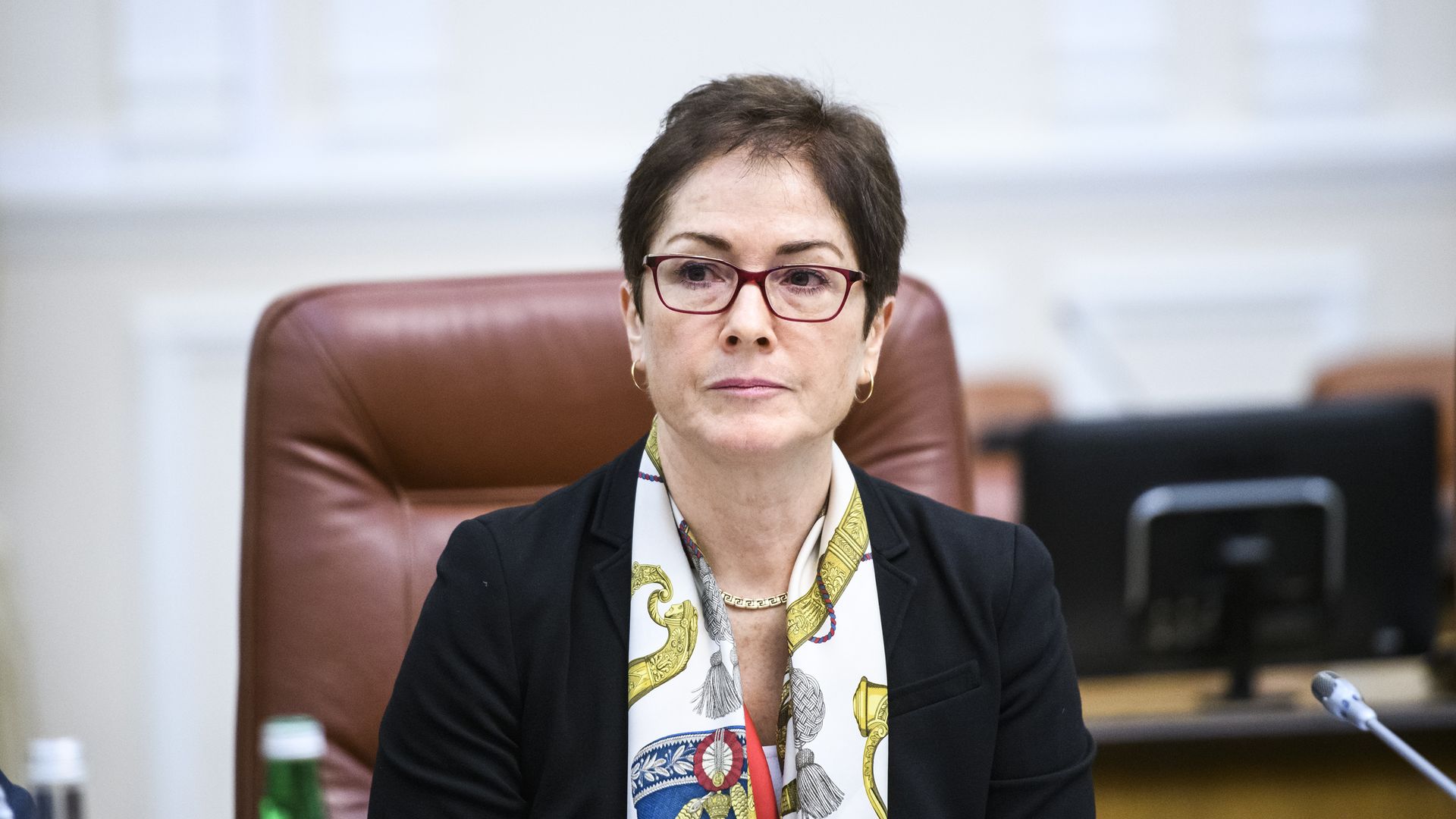
Rudy Giuliani told the Wall Street Journal on Thursday that he considered former U.S. Ambassador to Ukraine Marie Yovanovitch to be an obstacle to his efforts to push Ukraine to investigate Joe Biden, and that he informed President Trump of his concerns shortly before she was abruptly recalled in May 2019.
Why it matters: The whistleblower complaint at the heart of an impeachment inquiry into Trump claimed that Yovanovitch's ouster was one of the "circumstances" that led the whistleblower to believe Trump may have been abusing his power by soliciting foreign election interference. Yovanovitch is scheduled to appear in a deposition before the committees investigating Trump and Ukraine next Wednesday.
The big picture: Giuliani's efforts to oust Yovanovitch are well-documented. He told the Journal that he reminded Trump last spring about allegations that Yovanovitch displayed "anti-Trump bias" and that Trump "remembered he had a problem with her earlier and thought she had been dismissed."
- Giuliani said he received a follow-up call from the White House asking for more specifics about Yovanovitch and that she was recalled shortly after.
- He also told the Journal that he provided Secretary of State Mike Pompeo with documents about Yovanovitch's alleged "closeness" to Biden and that Pompeo told him he would investigate.
- These documents were later flagged by the State Department inspector general, who briefed lawmakers on the "assorted news clippings and conspiratorial memos" on Wednesday.
In a statement after the briefing, the chairs of the House Intelligence, Oversight and Foreign Affairs committees said:

